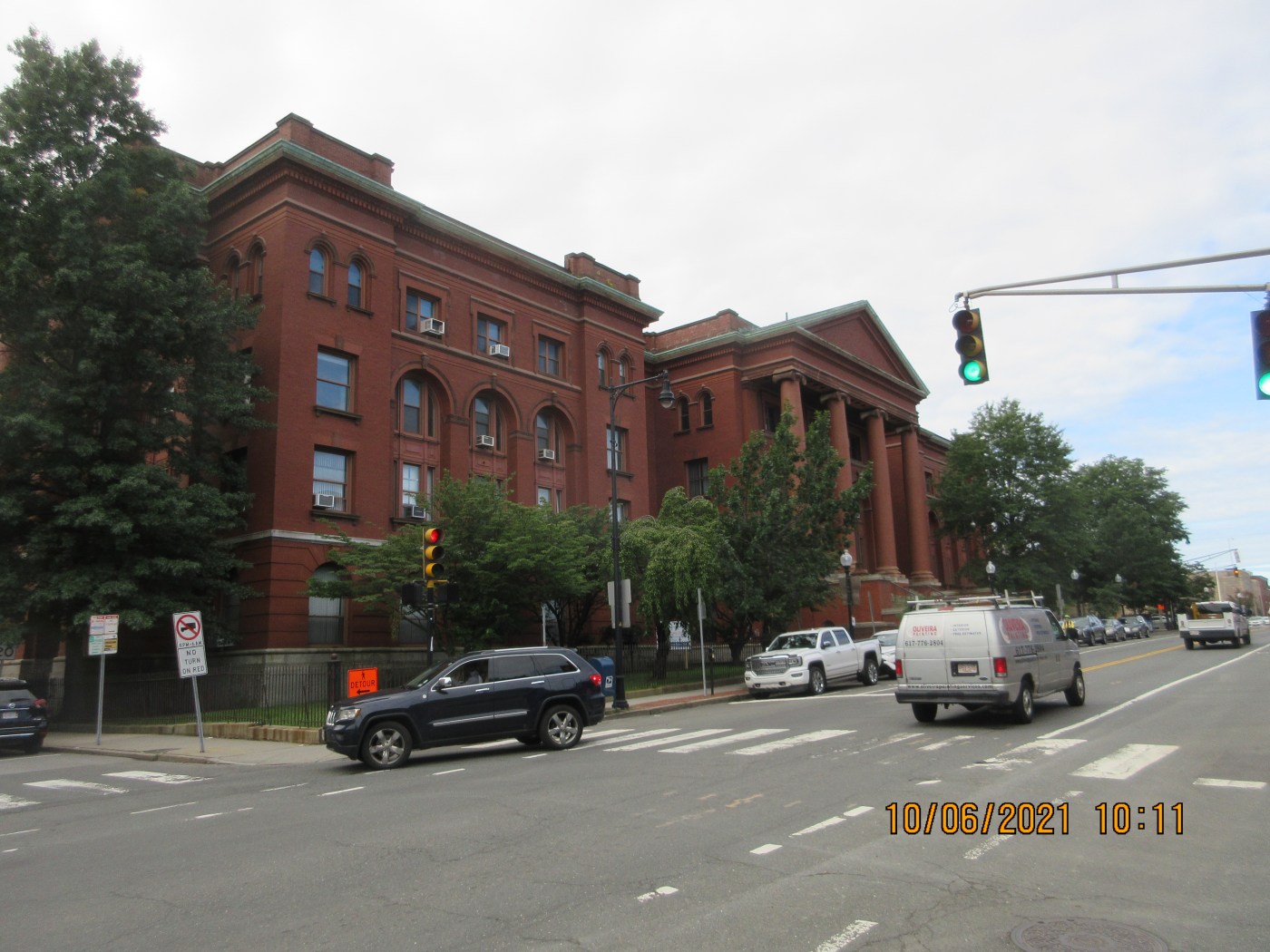
Healey ‘exploring’ using old Cambridge courthouse as night shelter for homeless families
The Healey administration is “exploring the possibility” of using a nearly empty former courthouse in Cambridge to house homeless families, and has reached out to Secretary of State William Galvin’s office to discuss the details, an official told the Herald Wednesday.
The move comes as Gov. Maura Healey is less than two weeks away from a Dec. 31 deadline to set up one or multiple overflow shelter sites with $50 million in funding for families with children and pregnant people seeking emergency assistance from the state.
A spokesperson for Galvin, Deb O’Malley, said Gov. Maura Healey’s office reached out to the secretary’s office last week to discuss whether the state-owned building that houses the Middlesex South Registry of Deeds “would be suitable” as a night-only shelter.
“The indication they gave to us was that they were looking at locations for future use should they be needed, sort of scoping out locations that could be used in the future if necessary,” O’Malley told the Herald.
The large red building on Cambridge Street used to house probate and family courts but those relocated to a different location in 2020 and only registry personnel occupy the space at the moment, O’Malley said.
No families have been moved into the building, O’Malley said.
Legislation Healey signed into law at the start of the month requires her administration to spend up to $50 million on an overflow shelter site for migrant and local homeless families who find themselves placed on a waitlist for emergency shelter.
Migrant families who are placed in emergency shelters in Massachusetts have been lawfully allowed into the United States by the federal government.
Healey is barred from using $250 million lawmakers approved to respond to an “ongoing humanitarian crisis” and influx of families seeking shelter until the overflow site is “secured and operational,” according to the law.
A spokesperson for the Executive Office of Housing and Livable Communities, which is involved with the state’s shelter response, said they could not confirm updates about potential overflow shelter sites “at this time.”
A Healey spokesperson did not return a request for comment.
Discussions between Healey and Galvin’s offices about the former courthouse in Cambridge have centered on the state of the building, which was constructed in 1870. Officials have raised plumbing and sanitary concerns as well as whether the building complies with fire codes, O’Malley said.
The courthouse and the land it is on were valued at more than $80 million and the building is listed as having an overall condition of “fair,” according to City of Cambridge records. The secretary of state’s office oversees the Middlesex South Registry of Deeds and has taken charge of caring for parts of the buildings employees use, O’Malley said.
Massachusetts officials are required to house homeless families with children and pregnant people pursuant to a decades-old right-to-shelter law, the only statewide statute of its kind in the United States.
Over the past year, a surge in newly-arrived migrants fleeing oftentimes dangerous conditions in their home country and eye watering housing prices in Massachusetts have led to a large increase in the number of people seeking emergency shelter placements.
The Healey administration capped the number of people in state-run emergency shelters at 7,500 families earlier this fall, a move that survived a legal challenge. Families applying for placement while the system is at capacity are placed on a waitlist and directed to a handful of night shelters.
There were 7,529 families in emergency shelters across Massachusetts as of Tuesday, according to state data.
About half of the families, or 3,516, entered emergency shelters as migrants, refugees, or asylum seekers, according to data last updated on Dec. 12 that was included in a report Healey submitted to the Legislature this week.
Healey has turned to publicly-owned property at least once before this year, using conference rooms in the transportation building in downtown Boston to provide overnight housing to homeless families awaiting placement in emergency shelters.
Gov. Maura Healey (Matt Stone/Boston Herald)


